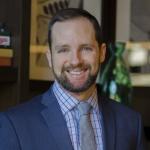As part of its climate commitments, the United States has set a goal of reaching 100% carbon-free electricity by 2035. Accelerated investments in the clean energy sector will lower renewable energy prices, making renewable energy increasingly competitive with energy efficiency. However, energy efficiency will play a critical role in enabling this decarbonized high-renewable energy future by reducing the overall electric system costs required to meet our 2035 goals.
Join us to learn about ACEEE’s new report on the role of energy efficiency in the transition to a highly renewable grid. This webinar will dive into the energy efficiency measures that are projected to be the most valuable to enable the transition while reducing costs. Attendees will hear from speakers who will provide perspectives of the role of energy efficiency in states’ decarbonization plans, as well as how energy efficiency is considered in modeling decarbonization pathways.
Speakers
Moderator: Edward Yim, State and Utility Policy Director, American Council for an Energy-Efficient Economy (ACEEE)
Edward’s work focuses on how transformative energy efficiency can be incorporated in utility programs and practices, including infrastructure planning for reliability and resiliency, at the state and local levels. He advocates for policies and programs that lead with low demand and energy efficiency strategies to combat climate change and to realize greater energy independence.
Mike Specian, Utilities Manager, American Council for an Energy-Efficient Economy (ACEEE)
Mike’s research focuses on the role of energy efficiency within the evolving energy landscape, including policies and practices to maximize energy efficiency's potential to mitigate greenhouse gas emissions and adapt to a changing climate. Prior to joining ACEEE, Mike worked at the U.S. Department of Energy, where he facilitated behind-the-meter innovations to make buildings more energy efficient, resilient, and flexible for the evolving electricity grid. Mike holds a PhD in physics from Johns Hopkins University.
Chioke Harris, Research Engineer, Building Technologies and Science Center at National Renewable Energy Laboratory (NREL)
Dr. Harris’ research focuses on the development and application of multiple building energy modeling tools, including ResStock, a highly granular bottom-up residential energy use model, and Scout, a software tool for evaluating the long-term energy, carbon, and consumer cost impacts of novel building technologies. He is also engaged in the development of high-performance building components and systems, particularly those focused on the building envelope. His work includes projects that bridge these domains, developing modeling and simulation methods to enable automated, high-throughput, and scalable methods for building energy performance retrofits.
Paul Ormond, Efficiency Engineer, Massachusetts Department of Energy Resources (DOER)
Paul works on the commonwealth of Massachusetts’ efforts to improve building codes and energy policy, particularly as they relate to decarbonization of the built environment. Paul is also the course developer and instructor for “Decarbonizing the Building Sector” at Harvard University Extension School. Paul is a licensed Massachusetts professional engineer and a graduate of Worcester Polytechnic Institute and the University of Massachusetts at Amherst.



